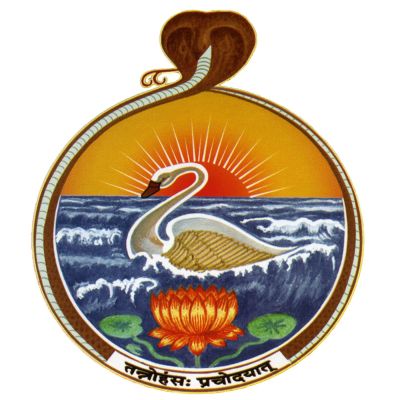Swami Tattwamayananda, currently the Minister of the Vedanta Society of Northern California, San Francisco, (originally founded by Swami Vivekananda in 1900) served in various centers of the Ramakrishna Order in India as editor, publisher, and teacher of Sanskrit, Advaitic texts such as Sri Shankaracharya's commentaries on the 'Prasthanatraya' (the fundamental Sanskrit texts of Vedanta philosophy), Buddhism and Indian philosophy. He underwent traditional training in Hindu scriptures, Sanskrit, Vedic and Vedantic literature for many years, from his early days. Before coming to the United States in January 2012 he was teaching Sanskrit, Vedantic scriptures and Indian philosophy at the Training center in Belur Math, the institution that trains the monks of the Ramakrishna Order at the headquarters of the Ramakrishna Mission, Kolkata, India. Apart from his traditional education, the Swami has also received modern University education in English literature, psychology, European history, and Western philosophy. He is frequently invited for lectures on Yoga, Vedanta, and traditional Hindu scriptures and for participating in interfaith dialogues.For more:Web: www.sfvedanta...
https://www.spreaker.com/show/featured-lectures
Yoga Science: Remaking Your Karma and Starting a New Life | Interfaith Harmony Lecture | Swami Tattwamayananda
This lecture was given by Swami Tattwamayananda on Thursday, April 11, 2019 at Stanford University. The lecture was hosted by the Stanford Hindu Students Association as part of Interfaith Harmony Week.
-Everybody wants to do noble actions and live up to a spiritual ideal but they also face mental conflicts when they actually try to start a new life. Yoga teaches the origin of those conflicts and how to overcome them.
-Every action or thought (‘karma’) leaves residuals effects (‘vrittis’) in our mental system.
-This accumulation of vrittis forms our character. It leads to strong tendencies (‘samskaras’) and further actions (‘karma’). This is an endless wheel (‘chakram’).
-Deep obsessive attraction (‘raga’), hatred (‘dvesa’) and fear (‘abhinivesa’) keep us chained and conflicted.
-Actions from previous lives have formed much of our character from this life.
-We have the freedom to start a new life by performing new positive actions and changing our karma.
-The result is a deep inner transcendental joy (‘citta prasada’)
The Yoga Tradition teaches a few invaluable techniques for succeeding.
1) Maitri, Karuna, Mudhita, Upeksha – friendliness toward fellow spiritual seekers, compassion for those who are seeking, sincere admiration for the virtuous, and indifference toward the negative.
2) Yamas and Niyamas – close all negative channels
3) Feed the mind with good spiritual food before meditation otherwise, it will eat bad food and revolt.
4) The mind never sits still, so the rascal must be given positive creative outlets.
5) A seeker turns his selfish worries into a great unselfish worry or desire (‘parinama duhkha’). Buddha overcame all his obstacles and became the Buddha.
A comprehensive exposition of this science in 111 lectures can be found at sfvedanta.org.
